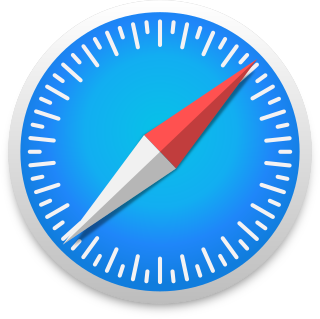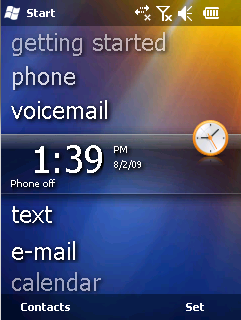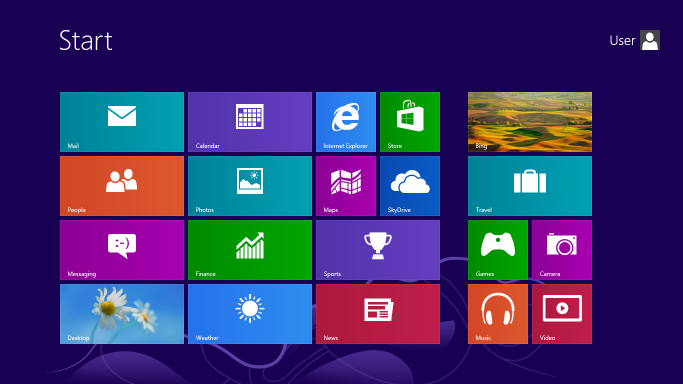
Microsoft Windows is a group of several graphical operating system families, all of which are developed, marketed, and sold by Microsoft. Each family caters to a certain sector of the computing industry. Active Windows families include Windows NT and Windows Embedded; these may encompass subfamilies, e.g. Windows Embedded Compact or Windows Server. Defunct Windows families include Windows 9x, Windows Mobile and Windows Phone.

Microsoft Corporation (MS) is an American multinational technology company with headquarters in Redmond, Washington. It develops, manufactures, licenses, supports and sells computer software, consumer electronics, personal computers, and related services. Its best known software products are the Microsoft Windows line of operating systems, the Microsoft Office suite, and the Internet Explorer and Edge web browsers. Its flagship hardware products are the Xbox video game consoles and the Microsoft Surface lineup of touchscreen personal computers. As of 2016, it is the world's largest software maker by revenue, and one of the world's most valuable companies. The word "Microsoft" is a portmanteau of "microcomputer" and "software". Microsoft is ranked No. 30 in the 2018 Fortune 500 rankings of the largest United States corporations by total revenue.

Microsoft Office is a family of client software, server software, and services developed by Microsoft. It was first announced by Bill Gates on August 1, 1988, at COMDEX in Las Vegas. Initially a marketing term for an office suite, the first version of Office contained Microsoft Word, Microsoft Excel, and Microsoft PowerPoint. Over the years, Office applications have grown substantially closer with shared features such as a common spell checker, OLE data integration and Visual Basic for Applications scripting language. Microsoft also positions Office as a development platform for line-of-business software under the Office Business Applications brand. On July 10, 2012, Softpedia reported that Office is used by over a billion people worldwide.

Windows XP is a personal computer operating system produced by Microsoft as part of the Windows NT family of operating systems. It was released to manufacturing on August 24, 2001, and broadly released for retail sale on October 25, 2001.

Windows 2000 is an operating system that was produced by Microsoft as part of the Windows NT family of operating systems. It was released to manufacturing on December 15, 1999, and launched to retail on February 17, 2000. It is the successor to Windows NT 4.0.

Windows 95 is a consumer-oriented operating system developed by Microsoft as part of its Windows 9x family of operating systems. The first operating system in the 9x family, it is the successor to Windows 3.1x, and was released to manufacturing on August 15, 1995, and generally to retail on August 24, 1995. Windows 95 merged Microsoft's formerly separate MS-DOS and Windows products, and featured significant improvements over its predecessor, most notably in the graphical user interface (GUI) and in its simplified "plug-and-play" features. There were also major changes made to the core components of the operating system, such as moving from a mainly co-operatively multitasked 16-bit architecture to a 32-bit preemptive multitasking architecture.

Safari is a graphical web browser developed by Apple, based on the WebKit engine. First released on desktop in 2003 with Mac OS X Panther, a mobile version has been bundled with iOS devices since the iPhone's introduction in 2007. Safari is the default browser on Apple devices. A Windows version was available from 2007 to 2012.

Windows-1252 or CP-1252 is a single-byte character encoding of the Latin alphabet, used by default in the legacy components of Microsoft Windows in English and some other Western languages.

Windows 7 is a personal computer operating system that was produced by Microsoft as part of the Windows NT family of operating systems. It was released to manufacturing on July 22, 2009 and became generally available on October 22, 2009, less than three years after the release of its predecessor, Windows Vista. Windows 7's server counterpart, Windows Server 2008 R2, was released at the same time.

VLC media player is a free and open-source, portable, cross-platform media player and streaming media server developed by the VideoLAN project. VLC is available for desktop operating systems and mobile platforms, such as Android, iOS, Tizen, Windows 10 Mobile and Windows Phone. VLC is also available on digital distribution platforms such as Apple's App Store, Google Play and Microsoft Store.

Windows Mobile is a discontinued family of mobile operating systems developed by Microsoft for smartphones and Pocket PCs.

OneDrive is a file hosting service and synchronization service operated by Microsoft as part of its suite of Office Online services. First launched in August 2007, OneDrive allows users to store files and personal data like Windows settings or BitLocker recovery keys in the cloud, share files, and sync files across Android, Windows Phone, and iOS mobile devices, Windows and macOS computers, and the Xbox 360 and Xbox One consoles. Users can upload Microsoft Office documents directly to OneDrive.
A mobile operating system is an operating system for phones, tablets, smartwatches, or other mobile devices. While computers such as typical laptops are 'mobile', the operating systems usually used on them are not considered mobile ones, as they were originally designed for desktop computers that historically did not have or need specific mobile features. This distinction is becoming blurred in some newer operating systems that are hybrids made for both uses.

Windows Phone (WP) is a family of discontinued mobile operating systems developed by Microsoft for smartphones as the replacement successor to Windows Mobile and Zune. Windows Phone features a new user interface derived from Metro design language. Unlike Windows Mobile, it is primarily aimed at the consumer market rather than the enterprise market. It was first launched in October 2010 with Windows Phone 7. Windows Phone 8.1 is the latest public release of the operating system, released to manufacturing on April 14, 2014.

MSN Messenger, later rebranded as Windows Live Messenger, was a cross-platform instant messaging client developed by Microsoft. It connected to the Microsoft Messenger service while also having compatibility with Yahoo! Messenger and Facebook Messenger. The client was first released as MSN Messenger Service on July 22, 1999, and was marketed under the MSN branding until 2005 when it was rebranded under Windows Live and has since been officially known by its present name, although its previous name was still used colloquially by most of its users. In June 2009, Microsoft reported the service attracted over 330 million active users each month, placing Messenger among the most widely used instant messaging clients in the world.

Google Chrome is a cross-platform web browser developed by Google. It was first released in 2008 for Microsoft Windows, and was later ported to Linux, macOS, iOS, and Android. The browser is also the main component of Chrome OS, where it serves as the platform for web apps.
Windows NT is a family of operating systems produced by Microsoft, the first version of which was released on July 27, 1993. It is a processor-independent, multiprocessing and multi-user operating system.

Windows 3.1x is a series of 16-bit operating environments produced by Microsoft for use on personal computers. The series began with Windows 3.1, which was first sold during April 1992 as a successor to Windows 3.0. Subsequent versions were released between 1992 and 1994 until the series was superseded by Windows 95. During its lifespan, Windows 3.1 introduced several enhancements to the still MS-DOS-based platform, including improved system stability, expanded support for multimedia, TrueType fonts, and workgroup networking.

Windows 8 is a personal computer operating system that was produced by Microsoft as part of the Windows NT family of operating systems. The operating system was released to manufacturing on August 1, 2012, with general availability on October 26, 2012.

Windows 10 is a series of personal computer operating systems produced by Microsoft as part of its Windows NT family of operating systems. It is the successor to Windows 8.1, and was released to manufacturing on July 15, 2015, and broadly released for retail sale on July 29, 2015. Windows 10 receives new builds on an ongoing basis, which are available at no additional cost to users, in addition to additional test builds of Windows 10 which are available to Windows Insiders. Devices in enterprise environments can receive these updates at a slower pace, or use long-term support milestones that only receive critical updates, such as security patches, over their ten-year lifespan of extended support.















